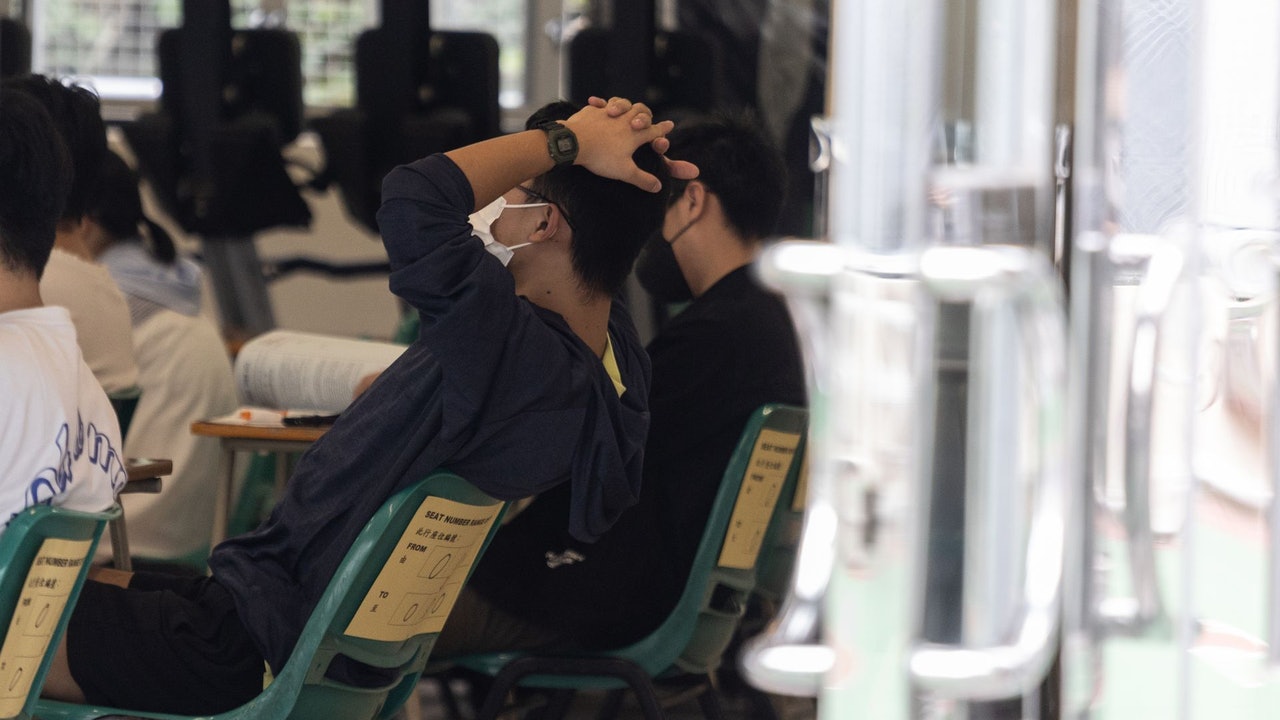The last subject of this year’s DSE Category A Written Test is History. This subject consists of Papers 1 and 2, of which Paper 1 contains four information questions. This year’s questions involve Japanese history, Hong Kong history, European history and international relations. "Choose three out of four" to answer.
A history teacher said that after checking the data, he found that this is the first time since 2012 that there are no Chinese history-related topics in the first paper in ten years. "Shallow", the breadth and depth of coverage are better than in previous years, and there are fewer so-called "trap" questions.
He emphasized that candidates should not think that they can get high marks by “memorizing”.
▼April 28 DSE Diploma Examination General Studies▼
+3
Volume 1: The Russo-Japanese War and Anglo-German relations, etc.
In Volume 1, the first question is about Japan in the first half of the 20th century, involving the Russo-Japanese War, primary education in Japan, and Japan’s westernization; the second question is about Hong Kong in the second half of the 20th century, including economic Development and population composition, etc.; the third topic is Europe in the early 20th century, including work related to peacekeeping and Anglo-German relations; the fourth topic is international cooperation in the second half of the 20th century, involving smallpox, the president of the World Bank, and the population Reckoning speeches, and the UN approach to international social and cultural issues.
For the first time in 10 years, there are no Chinese history questions in the volume. History teacher: rare
Ren Xie Rongshen of the History Department of Yuen Long Lutheran Middle School of the Hong Kong Lutheran Church said that after checking the data, it was found that this was the first time since 2012 that the HKEAA did not include any topics related to Chinese history in the paper, which was described as "very rare".
He believes that the first paper is relatively easy this time. Because the questions are more straightforward and there are fewer "trap questions", it is easier for candidates to play. As long as they read the historical facts well, I believe it is not difficult to deal with, but high scores depend on the candidates' mastery of history. Abilities and Answering Skills.
The data of the second question in the first volume is relatively large, and students need to have the ability to summarize.
Question words should pay attention to positive and negative examples to summarize
For example, Xie Rongshen said that part c of question 2 asks "how useful" and part c of question 4 asks "how successful", candidates need to balance the two aspects, that is, "useless" and "unsuccessful" examples are both It should be summed up; when asked about "change", it represents the process of changing from the old to the new. However, candidates often only remember to write the new part and forget to mention the old part, so they may lose points.
He also estimated that the second and fourth questions are relatively few candidates to answer, because although the second question is familiar with the Japanese history of the candidates, but the amount of data provided by the data is large, which tests the candidates' inductive ability; the fourth question involves international relations, it is A range that candidates are less familiar with.
Volume II Two Chinese History Questions Concerning the Role of the United States in the Cold War
As for the second part of volume 2, which is the topic of "Choose Two from Seven", this time it includes two topics on Chinese history, such as the exploration of China's modernization from 1900 to 1949, etc. The remaining topics involve Japan's foreign policy from 1931 to 1952, The characteristics of different classes in cooperation in Southeast Asia, the European economic integration from 1946 to 2000, and the role of the United States in the Cold War.
▼On May 13, DSE candidates went to the test site to take the test under the rainstorm warning▼
+1
Moderate difficulty, candidates are relatively familiar with European history
Xie Rongshen believes that the difficulty of paper 2 is moderate, and it is similar to previous years. Candidates may choose to answer the fourth and sixth questions related to European history, because students are generally familiar with European history. I like it.” He also said that the fourth question mentioned that candidates need to refer to the development of the two wars, and it is obvious that candidates need to compare.
He also thinks that the seventh question is relatively similar to the "trap question", because the question mentions "main", if candidates ignore this word, they will forget to compare.
He added that although it is rare for Volume 1 to contain no Chinese history questions, Volume 2 has two Chinese history questions, which is relatively balanced; and Volume 2 has no Hong Kong history questions this year.
DSE|Written test of Category A subjects is completed today. A total of 44 candidates are taking the test in Penny’s Bay within three weeks. DSE|Chinese Literature is going to start the test under the yellow rain. Director of the History Division of the Establishment of Diplomatic Relations: It may be difficult for candidates for DSE | Ethics and Religion exam starts to hit the Buddha's birthday. did not do well

